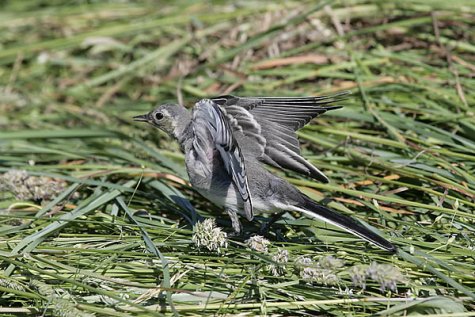Don’t intervene unnecessarily!
If necessary the bird can be moved to a less dangerous place, off the road or under a bush. The adult birds keep contact with their chicks by calling, and the smell of humans doesn’t scare them off, although it is often thought so
Many young birds that seem abandoned have parents nearby that feed and protect them, and only wait for the human to leave.
The fledglings need not be ready to fly yet when they go out to search for food and make flying exercises.
An injured bird is a different matter, in that case the Rescue services (Päästeamet) should be contacted, phone 112 or the Environmental Inspectorate (Keskkonnainspektoraat), phone 1313. The technical staff at the regional offices of the Environmental Board (Keskkonnaamet) can also be called; their mobile numbers are on the home page www.keskkonnaamet.ee (Contacts).
More information::
5045891
kaja.kybar@keskkonnaamet.ee From the editorial staff: If despite this there is a problem with feeding an uninjured but clearly orphaned fledgling bird, a special feeding mix may be tried: Prosecto dried insects with honey. It can be ordered for instance from Hilary Bird, Tartu (hilarybird@hotmail.com). Last year Hilary managed to bring up a swift fledgling at home. A detailed report of her experiences is in the June issue of the journal Loodusesõber.









